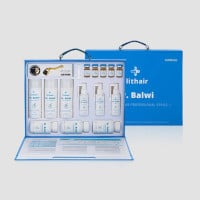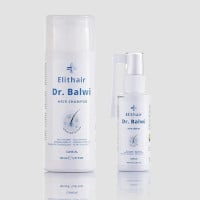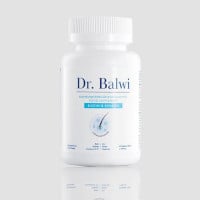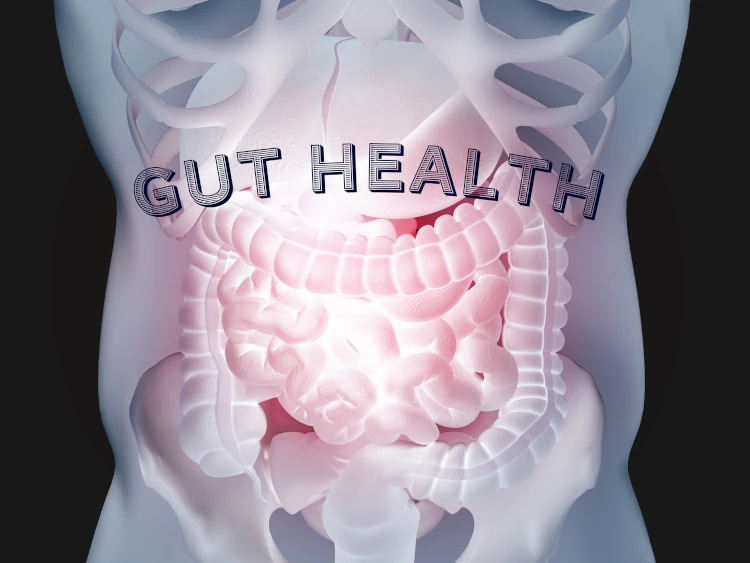
Gut Health, Probiotics, and Hair Growth
You may not immediately connect your gut to your hair, but there’s a surprising link between the two. Probiotics are live microorganisms that nurture a healthy digestive system by helping to break down food, improve nutrient absorption, and maintain a balanced microbiome.
While probiotics are known to support gut health, emerging research suggests that a healthy microbiome may indirectly influence hair follicle health by improving nutrient uptake and reducing systemic inflammation.
- The Gut-Hair Connection: How Probiotics May Boost Hair Growth
- Best Probiotics for Hair Growth
- What Are the Best Sources for Probiotics?
- Are There Other Ways To Boost Gut Health and Hair Growth?
- Other Nutrients That Benefit Hair Growth
- How Overall Health Affects Hair Growth and Loss
- From Gut Health to Grafts: Taking Control of Advanced Hair Loss
The Gut-Hair Connection: How Probiotics May Boost Hair Growth
The connection between gut health and hair is a growing area of scientific interest. Researchers are beginning to understand how gut bacteria may influence inflammation, hormone regulation, and nutrient absorption, all of which play a role in maintaining a healthy scalp and promoting strong hair growth.
One 2024 study found that probiotics may improve hair and scalp health. They significantly increased hair thickness, hair follicle count, skin thickness, and levels of VEGF, a growth factor that supports hair growth. Probiotics also reduced loose dandruff flakes, although they had less of an effect on stubborn dandruff. These benefits are linked to probiotics’ ability to support the immune system and key processes that promote healthy hair growth.
Best Probiotics for Hair Growth
If you’re looking to support your hair through your gut, consider probiotics known for promoting overall wellness:
- Lactobacillus acidophilus: Boosts nutrient absorption, especially B vitamins, vital for hair health.
- Lactobacillus plantarum: Supports digestive health and may help balance hormones.
- Saccharomyces boulardii: A yeast-based probiotic known to combat pathogens that disrupt the gut.
These strains do not directly stimulate hair follicle growth but may support gastrointestinal health, which in turn aids nutrient absorption and hormonal balance — both relevant to hair health.
What Are the Best Sources for Probiotics?
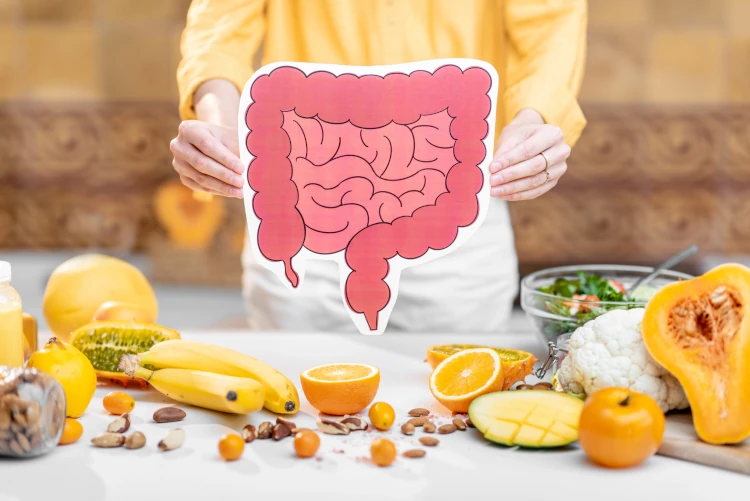
You can support your gut with probiotic-rich foods that are easy to incorporate into your diet. These foods help balance your microbiome and improve digestion and nutrient absorption — essential for overall well-being and strong hair. Here are some of the most accessible and effective probiotic sources to help support your gut and, by extension, your hair health:
- Yogurt: Look for live and active cultures on the label.
- Kefir: This fermented milk drink contains multiple probiotic strains.
- Kimchi and sauerkraut: Fermented vegetables are packed with gut-friendly bacteria.
- Miso: This is a fermented soybean paste commonly used in soups and marinades.
- Kombucha: This is a fizzy fermented tea that delivers beneficial microbes.
Taking a probiotic supplement is another option, especially if your diet is limited. For best results, choose one that contains multiple strains and a high CFU (colony-forming unit) count and is backed by third-party testing or clinical validation. Look for strains like Lactobacillus rhamnosus GG or Bifidobacterium lactis with proven survivability in the gut.
Are There Other Ways To Boost Gut Health and Hair Growth?
Besides probiotics, there are simple habits you can build to improve gut health. These daily choices help reinforce the gut’s ability to absorb nutrients, regulate inflammation, and maintain a stable environment for your overall well-being.
- Eat prebiotics: Foods like garlic, onions, and bananas feed your existing gut bacteria.
- Stay hydrated: Water aids digestion and nutrient transportation.
- Manage stress: Chronic stress disrupts gut flora and contributes to inflammation.
- Get enough sleep: Poor sleep patterns can imbalance your microbiome.
- Exercise regularly: Movement encourages healthy gut function.
All of these habits work together to create a more balanced internal environment, something your hair follicles may thank you for.
Other Nutrients That Benefit Hair Growth
In addition to probiotics, certain vitamins and minerals play a crucial role in hair health. Incorporate the following into your diet to help support your strands:
- Biotin (vitamin B7) is essential for keratin production.
- Vitamin D plays a role in hair follicle cycling, particularly in promoting the transition from telogen to anagen (growth phase). Deficiency has been linked to various hair loss conditions, including telogen effluvium and alopecia areata.
- Iron supports oxygen delivery to your scalp.
- Zinc aids in hair tissue growth and repair.
- Omega-3 fatty acids reduce inflammation and nourish the scalp.
Certain foods, like eggs, spinach, and fatty fish, are packed with the vitamins and minerals that nourish your hair from the inside out.
It’s important to be mindful of what you consume that could be damaging to your hair health. For example, energy drinks may cause hair loss due to their high caffeine and sugar content, which may contribute to inflammation and hormone disruption.
How Overall Health Affects Hair Growth and Loss
Your hair doesn’t live in isolation. It reflects what’s happening throughout your body. Poor nutrition, chronic illness, and hormonal imbalances can all take a toll on hair growth.
Conditions such as thyroid disorders, autoimmune diseases, and eating disorders have been linked to hair loss. Causes of thinning hair range from stress and genetics to poor diet. When the body lacks key nutrients or is under strain, it prioritizes survival over hair production.
Nutritional deficiencies are especially significant. When the body is deprived of calories and nutrients due to conditions like anorexia, it can lead to brittle strands and increased shedding. Further, a lack of protein may weaken hair structure. Similarly, liver dysfunction may also indirectly contribute to hair shedding or brittleness since it plays a key role in metabolizing hormones and storing iron, zinc, and vitamin A.
Certain nutrient gaps, such as deficiencies in vitamins or iron, might be to blame for thinning hair. It’s been found that a lack of essential vitamins can disrupt hair follicle function, while iron deficiency may impair oxygen delivery to the scalp, affecting growth and overall hair health.
From Gut Health to Grafts: Taking Control of Advanced Hair Loss
If you’re experiencing more advanced hair loss, lifestyle changes may not be enough. In such cases, medical treatments and cosmetic procedures might offer the results you’re seeking.
One popular option is a hair transplant, a procedure where follicles are relocated from one part of your scalp to another. A reliable clinic can offer personalized transplants that address different types and stages of hair loss. The cost of a hair transplant can vary based on the treatment plan and number of grafts needed, but for many, it’s a worthwhile investment.
If you’re curious about outcomes, exploring before and after hair transplant results can reveal how dramatically hair density and appearance can improve. The transformations often speak for themselves and can offer reassurance if you’re seriously considering the procedure.
Ultimately, your hair health reflects the care you give your entire body. Gut-friendly habits, nutrient-rich foods, and targeted treatments can all work together to help you look and feel your best.
